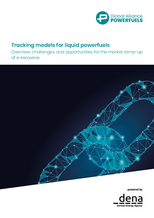
To add to the discussion on how to ensure traceability of renewable energy carriers and their sustainability characteristics, the Global Alliance Powerfuels published a report on tracking models for liquid powerfuels. In order for powerfuels to be counted towards voluntary or legally binding targets, their sustainability attributes such as greenhouse gas (GHG) emissions savings and the renewable origin of inputs used for their production, e.g., electricity, must be measured, certified, and tracked throughout their value chain. This is done via tracking models. Different tracking models, i.e. identity preservation, segregation, mass balance, and Book and Claim, come with different advantages and disadvantages for the establishment of the powerfuels market.
Within EU regulation, mass balance is currently the only accepted system for tracing the sustainability attributes of liquid renewable fuels. Book and Claim-based systems are already being developed and used to meet corporate demand for Sustainable Aviation Fuels (SAF) in voluntary markets., for example by DHL Global Forwarding and Air France KLM Martinair Cargo. The European Parliament proposed to allow for trading of e-kerosene through a Book and Claim-based mechanism within the ReFuelEU Aviation Regulation, which is currently under development.
To add to the discussion on this issue, this paper explores the role of tracking models for liquid powerfuels within the regulatory framework of the European Union (EU) and in voluntary markets. The differences between tracking models are discussed with a focus on mass balance and Book and Claim. Use-cases for Book and Claim-based systems for sustainable aviation fuel in voluntary markets are explored, as well.
If you would like to receive further information about this publication, please contact us at powerfuels(at)dena.de.

